"I always saw myself as an engineer" - Part 1/3
1970, Prof. em. Niklaus Wirth developed the programming language Pascal and became world famous with it. In this conversation with Prof. em. Friedemann Mattern, Wirth talks about the beginnings of computer science and how he influenced them significantly.
Video series: Part 1/3
Turing Award winner, pioneer and father of Pascal: Prof. em. Niklaus Wirth has had a remarkable impact on the field of computer science. His contributions to programming languages go beyond the development of Pascal. However, Pascal marked the beginning of Wirth’s influence on programming languages. In the first part of the video, Niklaus Wirth talks with Prof. em. Friedemann Mattern, former professor at the Institute for Intelligent Interactive Systems, in the Dozentenfoyer high above the rooftops of Zurich. They discuss the beginnings of computer science and critically analyse how Niklaus Wirth's work and passion drove progress in several areas: the introduction of an independent study programme in computer science at ETH Zurich, the foundation of the Department of Computer Science and the field of computer science all around the globe. Wirth’s achievements have decisively shaped the perspective of several generations of programmers and still are of great importance today.
The first part of the video interview takes us back to Niklaus Wirth as a boy. Then already, the little technology enthusiast was involved in aircraft construction and even built his first radios and amplifiers. His passion later led him to ETH Zurich. After graduating in electrical engineering, he went to Canada to get his Master's degree and later to UC Berkeley. In California he first came in touch with computers, programming languages and compilers: he had landed in the field of software. Berkeley not only opened doors in the research field for Niklaus Wirth, but also allowed him to meet important people in the field: Edsger W. Dijkstra, Tony Hoare, Harry Douglas Huskey, and Adriaan van Wijngaarden. These contacts became fruitful research connections and also real friendships.
The most famous work of Niklaus Wirth is Pascal, whose main advantages are its simplicity and its elegance: The language is based on the clear principles of structural programming formulated by Dijkstra, on a mathematical basis established by Hoare and on the architectural implementation of Algol W ideas by Niklaus Wirth.
In the interview, funny and yet unknown anecdotes come to light. Also, Niklaus Wirth gives exciting insights into his career and presents himself in his role as a driving force in computer science development.

Niklaus Wirth was a professor at ETH Zurich from 1968 to 1999. He was a leading force in establishing the department and the study programme of computer science. He received his diploma in electrical engineering from ETH Zurich, followed by a Master's degree from the Université Laval in Canada in 1960. In 1963, he received his doctorate from the University of California, Berkeley, where he worked with Harry Huskey on the generalisation of the programming language Algol 60. After assistant professorships at Stanford University and the University of Zurich, he returned to ETH in 1968, initially as Professor of Computer Science, where he taught and conducted research until 1999. In the years 1976 to 1977 and 1984 to 1985, study visits were made to Xerox's Palo Alto Research Center (PARC).
During 31 years at ETH Zurich, Niklaus Wirth developed new programming languages (Euler, PL360, Algol W, Pascal, Modula, Modula 2, Oberon, LoLa), built the first personal computers (PCs) in Switzerland, trained a first generation of Swiss computer scientists and wrote several standard works that have been translated worldwide. He received numerous honors, including the prestigious ACM Turing Award in 1984 as the first and so far only German-speaking computer scientist and the IEEE Computer Pioneer Award in 1988.
Friedemann Mattern was full professor at the Department of Computer Science from 1999 to 2020. He led the Distributed Systems Group and established ubiquitous computing as a research area at ETH Zurich. From 2010 to 2013 he was head of the department. At the Department of Computer Science, Mattern taught courses on distributed systems and algorithms, networks, ubiquitous computing, and smart energy. His lecture Informatik II for electrical engineers was part of the initiative "Critical Thinking ETH", which promotes interdisciplinary exchange, critical thinking and responsible action.
Friedemann Mattern is a member of the editorial board of several scientific journals and has published over 180 research articles. He is also a member of several scientific academies such as the German Academy of Sciences (Leopoldina) and of acatech, the German Academy of Science and Engineering.
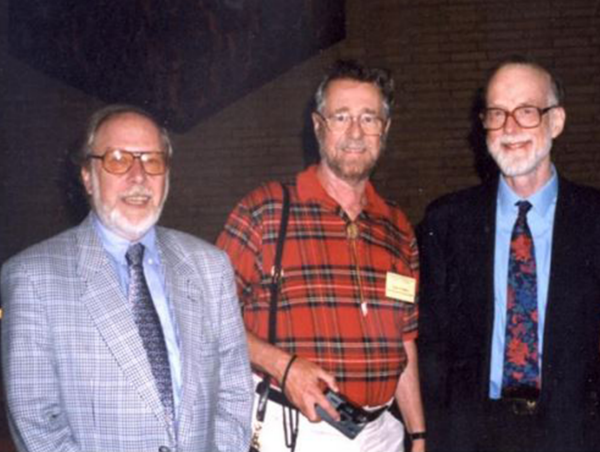
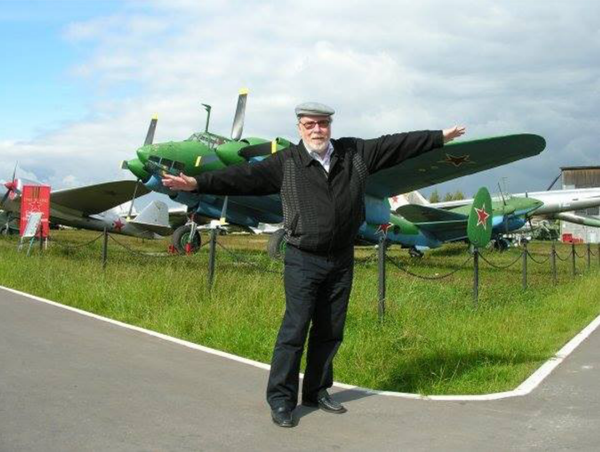
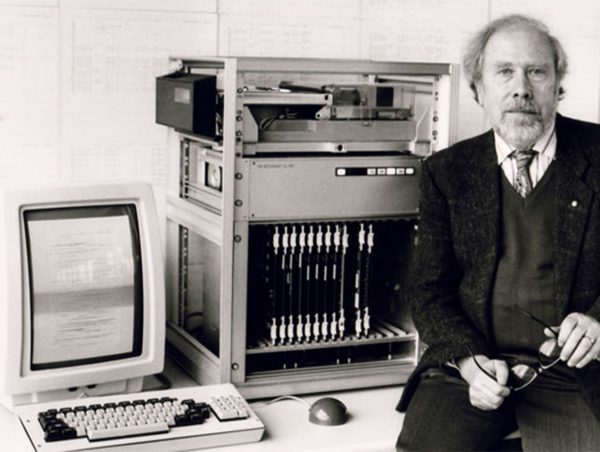
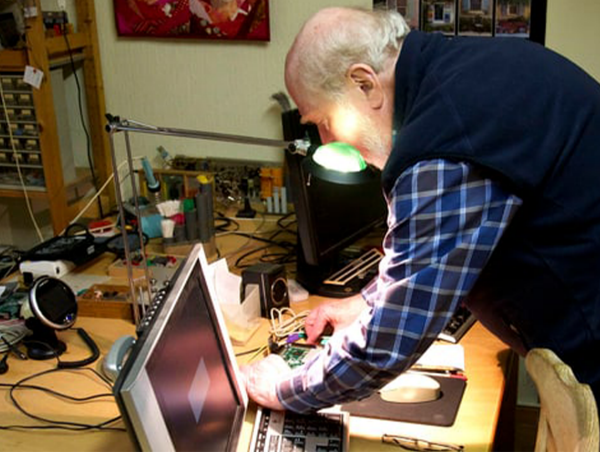
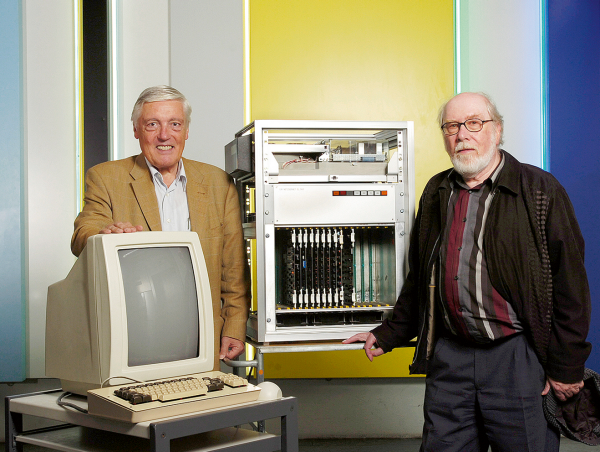
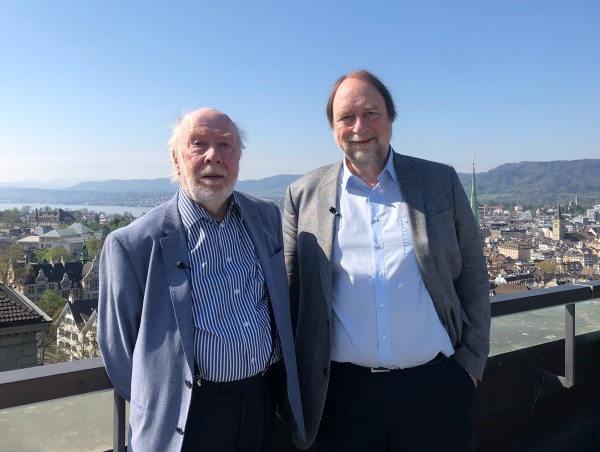
Mentions from the video
- external page Algol 58 (programming language)
- external page Algol 60 (programming language)
- external page Algol W (programming language)
- external page ALWAC III-E
- external page Bendix G-15
- external page Bootstrapping
- external page Compiler
- external page Vacuum tube
- external page Extended Backus–Naur form (EBNF)
- external page Euler (programming language)
- external page Hoare triple
- external page LoLa (programming language)
- external page Modula (programming language)
- external page Modula-2 (programming language)
- external page NELIAC
- external page Oberon (programming language)
- external page Pascal (programming language)
- external page p-code machine
- external page PL360 (programming language)
- external page Predicate transformer semantics
- external page Punched card
- external page Subset
- external page Very high frequency (VHF)
40 years D-INFK
The study programme and the Department of Computer Science at ETH Zurich are celebrating their fortieth anniversary this year. On this occasion, a series of interviews with former professors of the department, who were leading forces in the foundation and development of D-INFK, was created.
Anniversary website